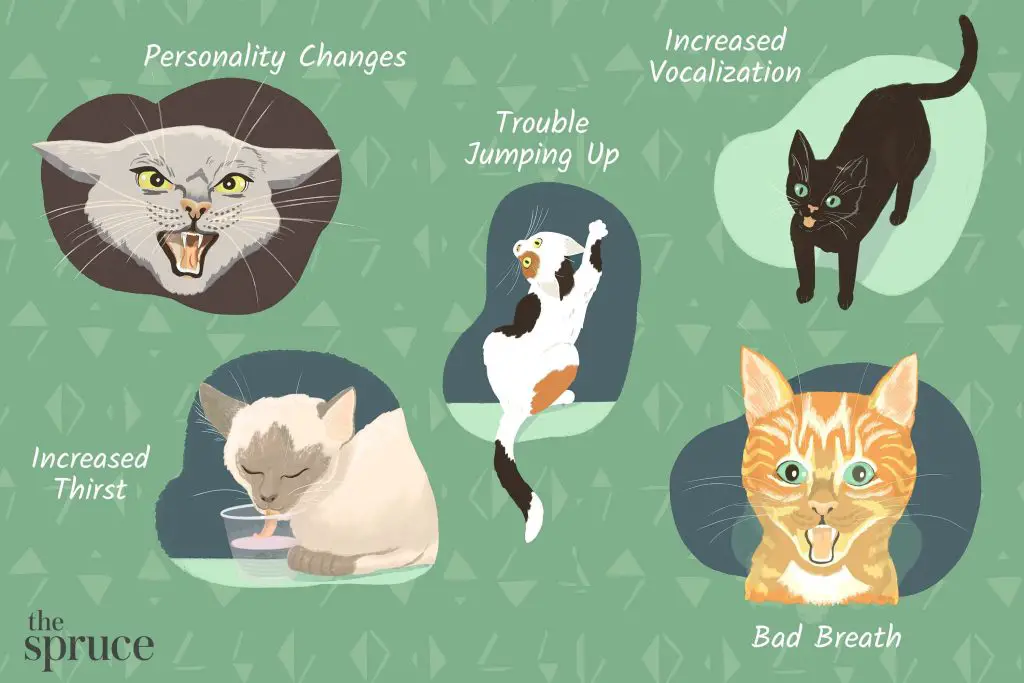When a cat hisses at a sick cat, it is typically due to a territorial response or fear that the sick cat’s illness is contagious. Cats rely heavily on scent and territory, so a change in behavior can be triggered by the sick cat smelling different or behaving differently.
Additionally, the hissing cat may be trying to protect its resources or assert dominance. It is essential to give both cats space, provide separate resources, and consult with a veterinarian to address the sick cat’s health condition. By taking these steps, you can help minimize conflict and provide the necessary care for both cats.
Understanding Cat Hissing Behavior
Understanding cat hissing behavior is crucial for cat owners, especially when one cat is sick. Hissing is a prominent form of communication for cats, and it serves several purposes. Firstly, it is a clear sign of aggression or discomfort. When a healthy cat hisses at a sick cat, it may be trying to establish dominance or protect its territory.
Cats also hiss as a way to express fear and protect themselves. The hissing sound acts as a warning to potential threats, signaling that the cat is ready to defend itself if necessary. In the case of a sick cat, the hissing may be due to the healthy cat perceiving a change in behavior or scent.
Common triggers for hissing in cats can include unfamiliar scents, changes in routine, presence of other animals or humans, pain or sickness, or feeling threatened. It is essential for cat owners to observe their cats closely and provide a safe and calm environment.
The Impact Of Illness On Cat Behavior
Illness can have a significant impact on a cat’s behavior, causing them to exhibit unusual or aggressive actions. Cats may hiss at their sick counterparts due to a variety of factors associated with their illness. Cats may become more territorial or protective as a response to the sick cat’s weakened state. They may be feeling stressed or anxious about the changes in their companion’s behavior and scent, which can trigger defensive behaviors like hissing. Changes in appetite or physical discomfort can also result in a cat being more irritable or reactive towards others, including sick cats. It is important to remember that hissing is a natural feline behavior and can serve as a warning sign or a means of asserting dominance. However, if the hissing persists or escalates, it may be necessary to separate the cats and consult with a veterinarian to address any underlying health issues.
Illness can cause various behavioral changes in cats. They may become lethargic and show a decreased interest in their surroundings and activities. Loss of appetite and weight loss are common signs of illness. Cats may also exhibit changes in litter box habits, such as urinary accidents or difficulty in using the litter box. Some cats may become more vocal or exhibit excessive grooming as a response to discomfort. These behavioral changes can be distressing for both the sick cat and their owners, highlighting the importance of seeking timely veterinary care to address any underlying health issues.
Illness can be a trigger for cat aggression. When cats are in pain or discomfort, they may display aggressive behaviors as a defensive mechanism. Illness-related pain can cause a cat to become more irritable and easily provoked, leading to hissing and even biting or scratching. Other factors like stress, fear, or territorial insecurity can further contribute to aggression in sick cats. It is crucial to address any signs of aggression promptly to ensure the well-being of both the sick cat and other pets or family members. Consulting with a veterinarian can help determine the underlying cause of aggression and develop a suitable treatment plan to address both the illness and associated behavioral issues.
Factors Contributing To Hissing Between Cats
Establishing a hierarchy within the cat hierarchy (social structure)
Fear and territorial aggression in cats: Cats are territorial animals by nature, and when one cat in a multi-cat household becomes sick, it may trigger fear and territorial aggression in the other cats. The healthy cat might perceive the sick cat as weak or vulnerable, leading to hissing and hostile behaviors.
Stress and anxiety in sick cats as a trigger for hissing: Illness can cause stress and anxiety in cats, which can contribute to their overall behavior, including hissing. Sick cats may feel discomfort, pain, or fear due to their condition, making them more prone to defensive hissing as a way to protect themselves.

Credit: orlandovets.com
Strategies For Managing Cat Hissing
Providing separate spaces for sick and healthy cats can help alleviate cat hissing. Sick cats may be in pain or discomfort, leading to defensive behavior. Creating separate areas with comfortable bedding, food, and water bowls can reduce stress and potential aggression between the cats.
Implementing gradual reintroduction protocols can also help minimize cat hissing. By separating the cats visually but allowing them to smell each other’s scents through a door or gate, they can gradually become familiar with one another again. This gradual reintroduction helps reduce the chances of sudden hissing or aggressive behavior.
Utilizing positive reinforcement techniques is another effective strategy. Rewarding both cats for calm and non-aggressive behavior with treats or praise can create positive associations. This helps to reduce negative reactions, including cat hissing, and encourages peaceful coexistence.
Seeking Veterinary Assistance And Advice
Importance of consulting a veterinarian for sick cats
When your cat is hissing at your sick cat, it’s crucial to seek veterinary assistance and advice. Consulting a veterinarian is important for several reasons. First, they have the expertise and knowledge to diagnose and treat your sick cat. This is essential for ensuring your cat receives the appropriate medical care and treatment. Veterinary professionals can also provide guidance on managing aggression between cats.
Aggression in cats can be complex and requires a professional’s understanding. A veterinarian can assess the situation, evaluate the underlying causes of aggression, and recommend behavioral interventions. They can also rule out any medical conditions that may be contributing to the aggressive behavior.
Seeking professional help is especially important if the aggression persists or escalates. A veterinarian can refer you to a board-certified veterinary behaviorist or a qualified cat behaviorist who specializes in resolving complex cat behavior issues. These experts can provide a customized behavior modification plan specific to your cats’ needs.
Conclusion
It’s important to understand that a cat hissing at a sick cat is a common response driven by fear, territorial instincts, and a desire to protect themselves and their resources. By providing both cats with separate spaces, ensuring the sick cat has access to proper medical care and attention, and gradually reintroducing them to each other, you can promote a more peaceful and harmonious relationship.
Remember, patience and understanding are key to helping your cats navigate through this challenging time.


